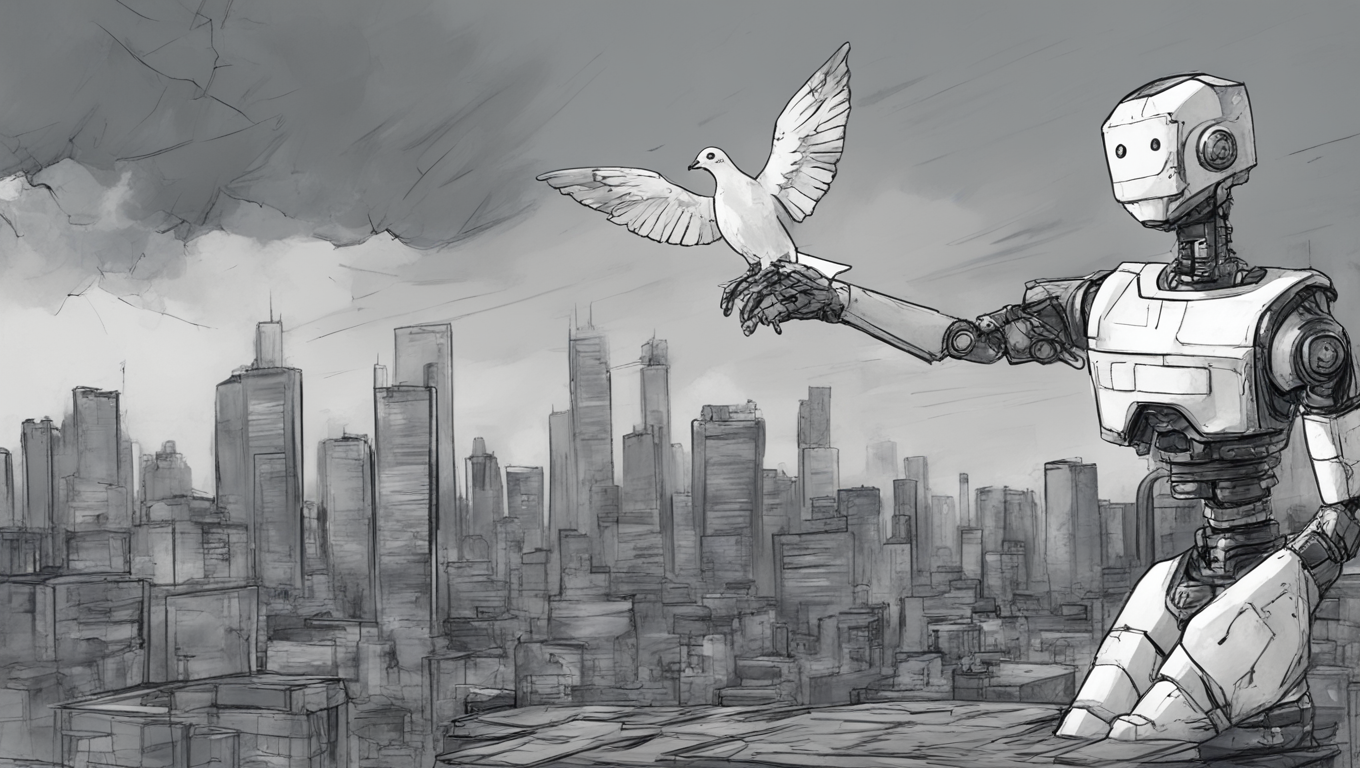The Future of Artificial Intelligence: Navigating the Challenges Ahead
In a thought-provoking address at the One Young World Summit in Montreal, renowned computer scientist Yoshua Bengio, an esteemed AI pioneer, shed light on the potential dangers of artificial intelligence (AI). Bengio, a professor at the University of Montreal and the head of the Montreal Institute for Learning Algorithms, has long been recognized for his groundbreaking work in deep learning, a subset of AI that stimulates the human brain to comprehend intricate patterns in data. However, Bengio has voiced concerns over the societal impact of AI and emphasizes the urgent need for research to minimize its risks.
Bengio’s message resonates with a powerful warning: individuals with substantial influence might harbor the desire to witness the replacement of humanity by machines. He urges society to contemplate the implications of a future in which machines possess comparable intelligence to humans. “It’s really important to project ourselves into the future where we have machines that are as smart as us on many counts, and what would that mean for society,” Bengio cautioned during his conversation with CNBC’s Tania Bryer.
The concept of artificial general intelligence (AGI) lies at the core of Bengio’s concerns. AGI refers to AI technology that aims to equal or surpass human intellect. Bengio postulates that machines are on the brink of acquiring most, if not all, of the cognitive abilities we possess. This transfer of intelligence carries inherent risks, particularly regarding control and governance. As Bengio asserts, “Intelligence gives power. So who’s going to control that power?”
Bengio specifically highlights the peril of possessing systems that surpass human comprehension, particularly when wielded by those with harmful intentions. The consequences could be catastrophic, leading to geopolitical instability, acts of terrorism, and disruptions in market dynamics and democratic processes. Moreover, as deep learning systems become increasingly sophisticated, the cost of building and training them escalates exponentially. This financial barrier would limit AI development to a select few nations and organizations, giving rise to concentrated economic, political, and military power.
As Bengio astutely observes, “There’s going to be a concentration of power: economic power, which can be bad for markets; political power, which could be bad for democracy; and military power, which could be bad for the geopolitical stability of our planet.” To avert these potential pitfalls, Bengio urges that careful study and swift mitigation strategies must be implemented.
The urgency of his warning cannot be overstated. Bengio’s reputation as a leading authority in AI lends weight to his cautionary words. He calls upon researchers, policymakers, and society as a whole to engage in comprehensive research, exploring the many dimensions of AI’s impact on humanity. Only through proactive measures can we ensure the safe and beneficial integration of AI into our society.
With AI rapidly progressing, Bengio’s words serve as a vital reminder that the careful navigation of this transformative technology is critical. Now is the time to address the open questions, explore potential risk factors, and work collectively towards harnessing the power of artificial intelligence for the betterment of humanity.





Use the share button below if you liked it.